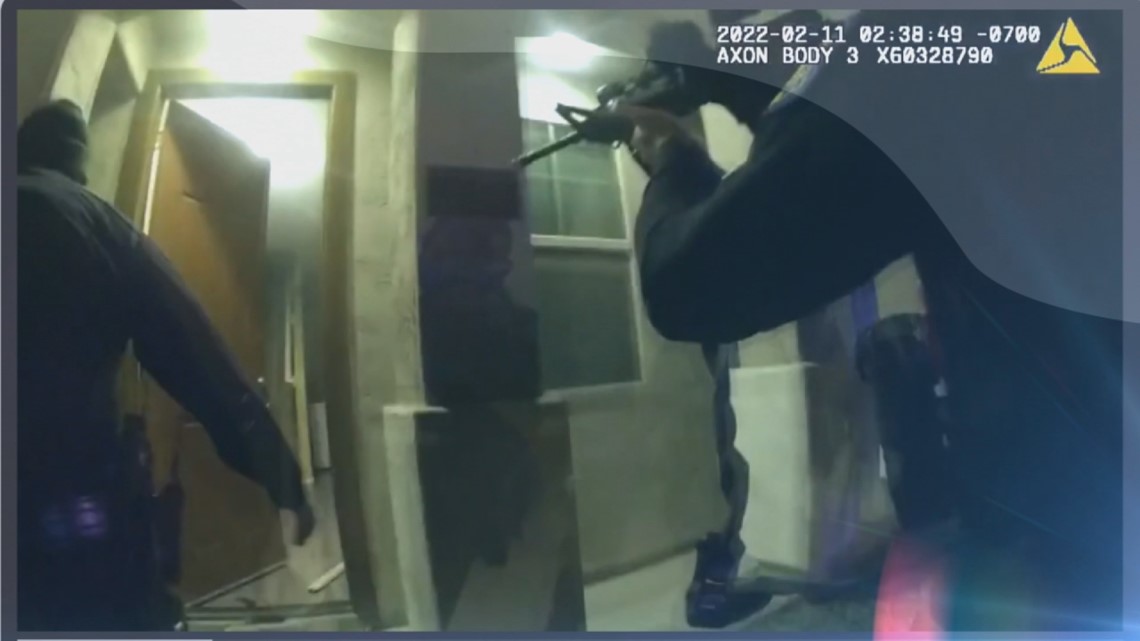PHOENIX — An Arizona lawmaker wants to see changes in the way the state handles disability retirement claims for first responders after a longtime Phoenix officer shot in the line of duty was denied maximum benefits.
State Senator John Kavanaugh, R-Fountain Hills, believes pension boards should be given more options when it comes to choosing what level of disability retirement a person qualifies for.
"The problem is, is there's no mid-ground," Kavanaugh said. "From a legislative standpoint, I would like to explore with the pension boards and the legislature a mid-ground, which a lot of states have, rather than say it's all or half. Maybe we need to have the doctor and the board determine the percent of disability."
Phoenix PD Officer Trisha Eskridge's story prompts push for change
Kavanaugh's comments stem from the case of now-retired Phoenix PD Officer Trisha Eskridge.
After serving Phoenix PD for 22 years, Eskridge was shot multiple times in an ambush attack while trying to save an infant from the front doorstep of a home near 51st Avenue and Broadway in February of 2022.


Eskridge was hailed a hero, but a year after her injury, she lost a third of her pay as the City of Phoenix's policy is to stop supplementing workers' compensation one year after an injury. That's when she decided to apply for disability retirement.
The I-Team exposed delays she faced.
Eskridge waited months for a decision to be made. Her sisters spoke out to 12News and said Eskridge was struggling in more ways than one. Not only was she still going through surgeries and treatments to try to heal from her injuries, the single mother of four was struggling financially.
“She's not asking for anything special. She's not asking for any kind of special treatment. She's just asking to be taken care of,“ said Gina Wilder, Eskridge's sister.
“How is that OK? Why would anyone be a police officer in Phoenix?” asked Andrea Stott, Eskridge's sister.
In August, the City of Phoenix Pension Board approved an "accidental" disability claim and denied her application for a "catastrophic" disability. The financial difference between the two is significant. A "catastrophic" claim means Eskridge would have received ninety percent of her salary. The "accidental" claim she received instead means she gets fifty percent.
Board member Mark Schweikert, a Phoenix PD lieutenant, made a motion to approve Eskridge's "catastrophic" disability. But the remaining members voted against it, citing Eskridge's independent medical examination where the doctor wrote, "the employee could engage in some form of gainful employment in the civilian sector. Most likely in the sedentary capacity."
“Shame on you guys. Just shame on you. I hope you give some thought to what you’ve done to our family," Wilder said over Zoom when the pension board announced its decision.
I-Team obtains disability retirement claim data
So, who does get a "catastrophic" disability claim approved?
The City of Phoenix declined to provide specific information about what injuries have qualified city employees for an approved "catastrophic" disability claim.
But the I-Team obtained raw numbers showing just how rare "catastrophic" claims are.
The "catastrophic" option was added in the City of Phoenix back in 2004. Since then, in nearly twenty years, less than ten "catastrophic" disability applications have been approved for police or fire personnel by the board.


“This is one of the deepest, darkest secrets of law enforcement."
Many in the law enforcement community, including Randy Sutton of The Wounded Blue, have been critical of the board's decision in Eskridge's case. He said there are not enough resources available to officers who survive severe line of duty injuries.
“This is one of the deepest, darkest secrets of law enforcement," Sutton said. "If you get killed in the line of duty, there are a lot of benefits. There's a lot of organizations that come in and help your family. But those who get severely injured in the line of duty often fall through the cracks."
Sutton is a retired Las Vegas PD lieutenant. His organization provides peer support and resources for those severely injured in the line of duty.
“I don't know where they came up with that term, here's a woman who was shot three times that it wasn't 'accidental.' Her life has been altered," Sutton said. That system needs to be changed. And that's something that should be done at the level of the state legislature.”
State Sen. John Kavanaugh explores ways to improve disability retirement
“What was your reaction when you heard about officer Trisha Eskridge’s story?” asked 12News reporter Bianca Buono.
"I was very sympathetic. We expect police officers to run towards danger and not away from it, which is what they do, and which is what she did in this situation," said Sen. John Kavanaugh.
Kavanaugh was a Port Authority of New York and New Jersey police officer for twenty years.
“Do you think there needs to be more of a focus on helping officers who do survive?” Buono asked.
“I think it's ridiculous to have death bestow so much more when if you can't work, and you're psychologically damaged by by these horrific shoot-out encounters that you're you're left with very little," Kavanaugh said.
Kavanaugh believes pension boards should have more disability categories. He said he has plans to meet with the state pension board and law enforcement community to come up with a plan in an effort to help first responders like Eskridge ease the burden of life after injury.
“We have to clearly communicate to police officers that if they are killed or seriously injured in the line of duty, that they'll be taken care of," Kavanaugh said. "Because when there's gunshots or people with knives and machetes, we expect them and we want them to protect us by running to the scene and not hesitating because they're afraid that they will leave their family in the financial lurch.”


Up to Speed
Catch up on the latest news and stories on our 12News YouTube playlist here.

